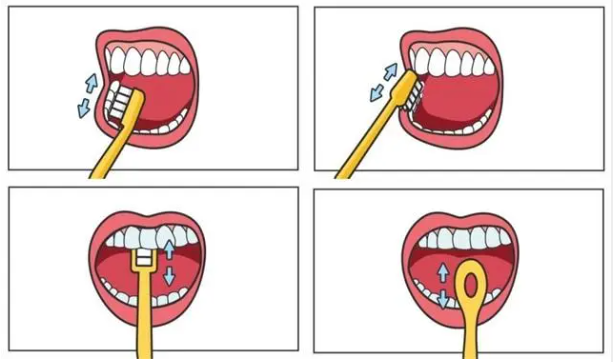Why do you get cavities when you brush your teeth every day?
Why do you get cavities when you brush your teeth every day?
When I was young, my mother would always say that if you don’t brush your teeth well, you will get cavities; when you grow up, you have developed a good habit of brushing your teeth every day, but why do you get cavities? Is brushing your teeth really useless? Or are we not brushing our teeth "well"? !
1. What is tooth decay?
Tooth decay is what we often call decayed teeth when we were young, but decayed teeth are not really "worms" in the teeth, but bacteria in the mouth,
which ferment the sugar in food into acidic substances, which corrode our tooth enamel. Dental caries occurs when minerals dissolve.
Tooth decay is related to many factors, it is related to the quality of tooth enamel, the number of bacteria remaining on the tooth surface, sugar content and action time.
2. Why do you get cavities when you brush your teeth every day?
From the formation of tooth decay, we can see that as long as we control the four factors of "quality of tooth enamel", "number of bacteria remaining on tooth surface",
"sugar content" and "action time", tooth decay will stay away from us. The best way to eliminate these four triggers is to brush your teeth,
but why do you still get cavities after brushing your teeth? There are many reasons here!
1. The biggest possibility is that it is not cleaned. Inadequate brushing, short brushing time, too old toothbrush, too hard toothbrush, etc.
2. The teeth are not neat, and some dead corners are difficult to clean
3. Tooth congenital dysplasia, such as poor calcification, enamel is relatively "bad"
4. Eat sweets and drink too much every day
5. The composition and amount of saliva also affects the number of bacteria in the mouth
6. Brushing teeth incorrectly

3. The role of brushing teeth
Brushing your teeth is the best way to remove food residue, tartar, and plaque that remain on the surface and crevices of your teeth.
Among them, bacterial plaque is the most important cause of dental caries and periodontal disease. Therefore, brushing your teeth twice a day,
morning and evening, and brushing your teeth "well" must not be less. When choosing toothpaste,
choose a toothpaste whose active ingredient contains "active fluorine", which can better prevent the occurrence of caries.
4. When to brush your teeth
Scientifically speaking, you should brush your teeth after every meal, especially sweet and sour foods.
Of course, this is not realistic, thus requiring us to "be more efficient" every time we brush our teeth!
The plaque that adheres to the surface of the teeth is actually very strong, so if you don’t brush your teeth for enough time,
you can’t remove the plaque on your teeth. Over time, the bacteria will become deeper and more accumulated. For people with irregular teeth,
they should pay more attention to oral cleaning, and those fissures, dead ends, and hidden places even need the help of dental floss, interdental brushes, or toothpicks.
If you cannot brush your teeth in time after eating, it is best to rinse your mouth to reduce bacteria and food residue in your mouth.



